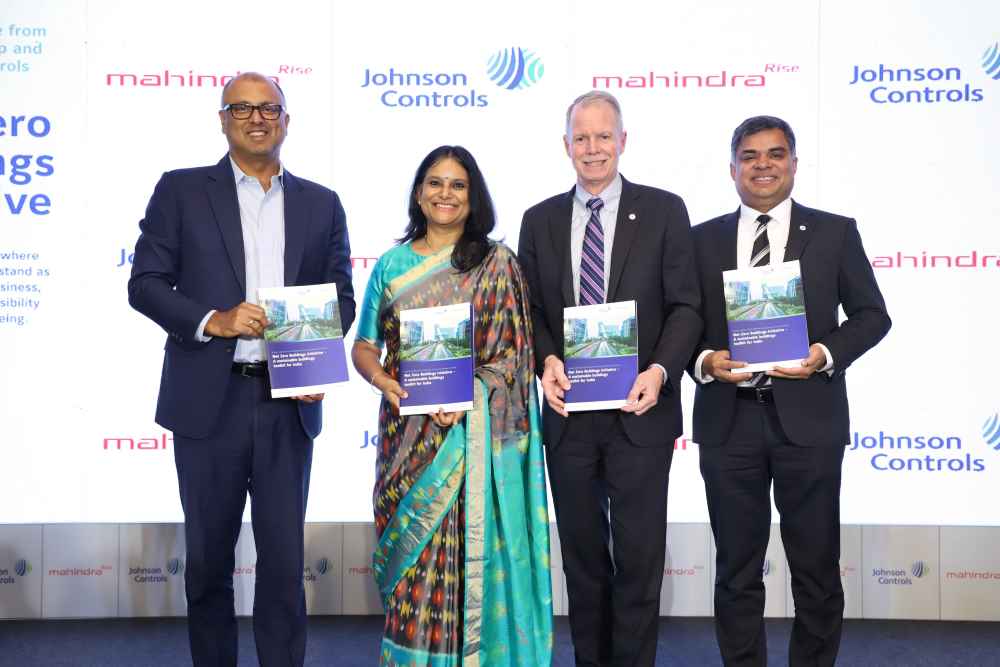

The Mahindra Group and Johnson Controls, a global leader in smart, healthy and sustainable buildings, have announced a Net Zero Buildings Initiative to decarbonize India’s commercial, urban residential and public buildings. The joint initiative will simplify access to key information and resources to help organizations start their net zero buildings journeys.
“At Mahindra, we strongly believe in operating as a ‘Planet Positive’ organization. The group has undertaken multiple initiatives to decarbonize our operational infrastructure—leading to both financially and environmentally value accretive outcomes,” said Abanti Sankaranarayanan, Chief Group Public Affairs Officer and Group Executive Board Member.
According to the IEA, three-quarters of India’s anticipated 2040 buildings have yet to be built. With the sector accounting for 20% of emissions and more than 30% of energy consumption in the country, the transition to smart and sustainable buildings is becoming an environmental and economic imperative.
George Oliver, CEO, Johnson Controls, held, “The joining together of our two companies to develop this unique initiative is a natural fit—leveraging Johnson Controls’ leadership in smart building technology and Mahindra’s renowned multi-industry expertise and reach. We believe it will help guide and inspire a movement toward a more sustainable built environment, both in India and beyond.”
The Net Zero Buildings Initiative—comprising a cost-free, all-in-one toolkit and training—will help building and facility owners learn about best practices of sustainable buildings, implement tools to assess building parameters, identify and implement conservation measures, and understand building regulations in India, available incentives, technology, financing models, and more.
“This collaboration is a statement of intent from the construction industry to support the Indian government’s journey towards the low-carbon pathway of development,” said, MoHUA Minister Hardeep Singh Puri. “Sustainability has been an article of faith for this government, and no developing country has ever steered away from the high carbon path of development as profoundly as India has done.”
Mahindra Group said that investing in energy efficient infrastructure can potentially reduce electricity consumption by 40-60% compared to conventional buildings. According to India Energy Outlook 2021, even a 30% improvement in energy efficiency from buildings can potentially save ~250 TWh of electricity by 2030, which means significant electrical energy could be given back to the grid to further fuel economic growth.
Houston headquartered Syzygy Plasmonics has announced the beginning of Front-End Engineering and Design (FEED) with…
State owned THDC India Limited (THDCIL) has announced the successful commencement of COD process of…
The Uttar Pradesh government is preparing to launch the Uttar Pradesh Sustainable Aviation Fuel (SAF)…
India’s cooperative sugar industry is urging the government to revise ethanol procurement prices and extend…
The Indian Biogas Association (IBA) has announced a key step taken to boost biofuels sector…
In a key development that would bolster the development of green hydrogen in the North…